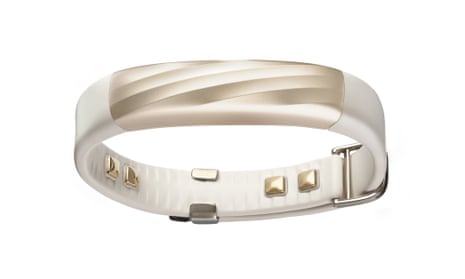Fitness trackers made by the defunct wearables company Jawbone were still on sale at Amazon, Selfridges and Groupon more than a month after they were rendered useless by the closure of a companion app, according to research by the consumer magazine Which.
The Jawbone UP2, first released in 2015, is a wrist-worn fitness tracker. It connects to iOS and Android phones through Bluetooth, and uploads its data to a companion app, also branded UP. But in 2017, after a run of bad financial results, the company liquidated its assets, and earlier this year it disabled the app entirely.
That left existing Jawbone Up users unable to carry on using their fitness tracker, sparking hundreds of complaints on social media. But it also pre-emptively broke unsold products, despite the fact that they were still on shelves across the country.
Until Which drew attention to it, Selfridges was selling two models of the Jawbone Up2 for £89.99, and Amazon was selling a large selection of devices made by the company. Although they have been removed for sale from the UK site, Amazon’s US branch continues to sell Jawbone devices, including a cut-price version of the UP2 for just $19.97 – a steal, if the device still worked.
Amazon UK, Selfridges and Groupon all removed the Jawbone devices from sale after being contacted by Which. Selfridges added that the tracker hadn’t actually been in stock when it was advertised for sale on the site.
Jawbone Health, a successor company to Jawbone that bought many of its assets in the liquidation sale, said that Jawbone trackers haven’t been officially distributed or sold in the UK for at least two years.
“Retailers have a responsibility to ensure that products listed on websites or sold in stores are fully functional,” said Alex Neill, Which’s managing director of home products and services. “This is especially relevant to products that include a digital component that’s vital to operation, which is typically the case with wearables.
“It’s important for all retailers to ensure that suppliers keep them fully informed of any issues that customers might have and take appropriate steps where necessary to ensure that consumers are not inconvenienced.”
